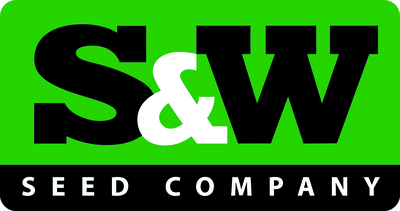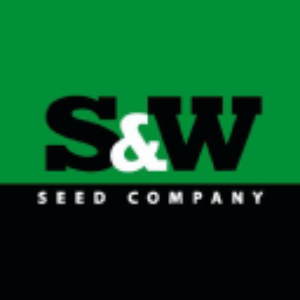Shell and S&W Enter Joint Venture to Develop and Produce Sustainable Biofuel Feedstocks
Rhea-AI Summary
S&W Seed Company (SANW) announced a joint venture with Shell to develop novel plant genetics for oil seed cover crops aimed at biofuel production. Named Vision Bioenergy Oilseeds LLC, the JV will leverage S&W's expertise in seed research and processing, particularly focusing on Camelina sativa and other oilseed species. The initiative is expected to begin grain production in late 2023, contributing to sustainable biofuel sources and reduced greenhouse gases. This partnership aims to enhance agricultural productivity and address climate change by providing scalable energy solutions.
Positive
- Formation of a joint venture with Shell enhances growth prospects.
- Focus on sustainable biofuels aligns with global energy transition goals.
- Camelina is identified as a commercially viable oilseed for future processing.
Negative
- Initial grain production is only expected to start in late 2023, indicating a slow rollout.
- Potential risks related to market adoption and macroeconomic conditions may affect the JV's success.
News Market Reaction – SANW
On the day this news was published, SANW gained 12.42%, reflecting a significant positive market reaction.
Data tracked by StockTitan Argus on the day of publication.
The JV intends to develop Camelina ("Camelina sativa") and other oilseed species from which oil and meal can be extracted for future processing into animal feed, biofuels, and other bioproducts. S&W will contribute its expertise in seed research, technology, production, and processing to the JV, including its seed processing and research facilities in
Camelina is regarded as a scalable and commercially viable oilseed with the potential to be a sustainable feedstock source for the energy transition. Camelina also is recognized as a low greenhouse gas cover crop in the US. Cover crops are planted between main crop growing seasons, with the aim of not influencing the price or availability of crops grown for food and feed. Using effective controls and management, Camelina has the potential to provide sustainable feedstocks, and create social and environmental co-benefits by diversifying farmers' income streams and reducing soil erosion.
Biofuels, such as those made from Camelina oil, may be an effective way to help decarbonize customers in hard-to-abate sectors, where energy density in fuels is key, including the aviation, marine, and heavy-duty road transport sectors.
The JV expects to carry out initial grain production in late 2023.
"We are pleased to be entering this JV with Shell, which leverages our seed and technology capabilities with Camelina and demonstrates how agriculture and energy can work together to lower carbon emissions by producing domestically sourced sustainable biofuel feedstocks," commented
About
Founded in 1980,
S&W Seed Safe Harbor Statement
This release contains "forward-looking statements" within the meaning of Section 27A of the Securities Act of 1933, as amended, and Section 21E of the Securities Exchange Act of 1934, as amended and such forward-looking statements are made pursuant to the safe harbor provisions of the Private Securities Litigation Reform Act of 1995. "Forward-looking statements" describe future expectations, plans, results, or strategies and are generally preceded by words such as "anticipates," "believe," "can," "expected," "may," "future," "plans," "potential," "should" or "will." Forward-looking statements in this release include, but are not limited to, statements regarding the potential for Camelina to be a scalable and commercially viable oilseed and a sustainable feedstock source and to provide benefits to farmers' income streams and reduce soil erosion; the expected timing of initial grain production by the JV; and the long-term opportunity presented by Camelina, including enhanced farmland food production. You are cautioned that such statements are subject to a multitude of risks and uncertainties that could cause future circumstances, events, or results to differ materially from those projected in the forward-looking statements, including risks and uncertainties related to: market adoption of products designed to support the energy transition and customer demand for the JV's products; the effects of macroeconomic events, such as the COVID-19 pandemic, and uncertain market conditions, such as inflation and supply chain disruptions, on the JV's business and operations; the sufficiency of the JV's cash and access to capital in order to develop its business; changes in the competitive landscape and the introduction of competitive products; our business and strategic initiatives may not achieve the expected results; and the risks associated with our ability to successfully optimize and commercialize our business. These and other risks are identified in our filings with the
+1 720-593-3570
S&W Investor Relations
+1 602-889-9700
sanw@lythampartners.com
![]() View original content to download multimedia:https://www.prnewswire.com/news-releases/shell-and-sw-enter-joint-venture-to-develop-and-produce-sustainable-biofuel-feedstocks-301740143.html
View original content to download multimedia:https://www.prnewswire.com/news-releases/shell-and-sw-enter-joint-venture-to-develop-and-produce-sustainable-biofuel-feedstocks-301740143.html
SOURCE








